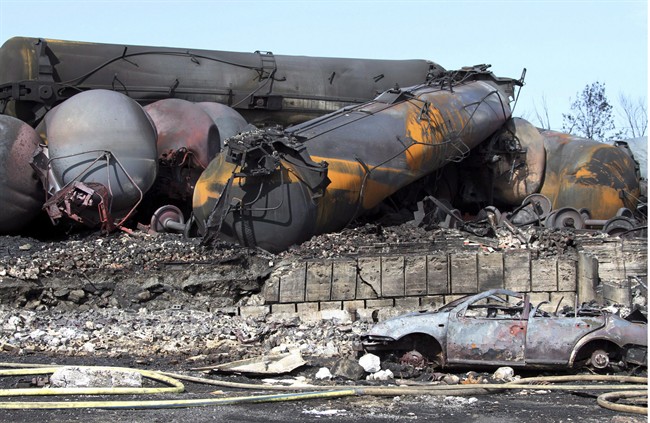OTTAWA – A train operator’s level of fatigue, sleep patterns and “ability to make effective, safe decisions” were among the risk factors singled out in Transport Canada guidelines for single-person train operations – advice that was finalized just months before the Lac-Megantic rail disaster.

Records obtained under the Access to Information Act show “human factors” such as fatigue, lifestyle and workload demands – and the best way to deal with them – were flagged for departmental rail safety reviewers.

Get daily National news
BY THE NUMBERS: Lac-Megantic rail disaster
The Transport Canada guidelines, finalized May 13, 2013, were intended to help Transport Canada staff assess risk assessments filed by railways operating trains with just a single employee.
On July 6 last year, a 72-car train parked for the night came loose and rolled into the town of Lac-Megantic, Que., creating a fireball that killed 47 people, destroyed buildings and contaminated waterways.
The now-defunct Montreal, Maine and Atlantic Railway Ltd. and three employees of the company – including the train’s sole operator – face charges of criminal negligence causing death.
The federal Transportation Safety Board is set to release its final report Tuesday on the devastating accident.







Comments